
Talking about solar warranties is not the most exciting thing, but it’s important to understand them because they will protect you financially should your solar panels fail or develop a fault.
There are several facets to a solar warranty, so let’s uncover what they mean and spell out exactly what they cover.
In a Nutshell
- All reputable solar panel manufacturers include a warranty as a standard.
- The solar product warranty lasts for 10+ years and covers product defects and faults.
- The solar performance warranty lasts for 25+ years and guarantees a certain level of performance.
- Solar inverter warranties are separate and last 10+ years.
- Homeowners insurance will cover solar panels as part of the property.
- Only some commercial property insurers will include solar panels.
- A Trina Solar panel warranty includes a 12-year product warranty and a 30-year performance warranty.
What Is a Solar Panel Warranty?
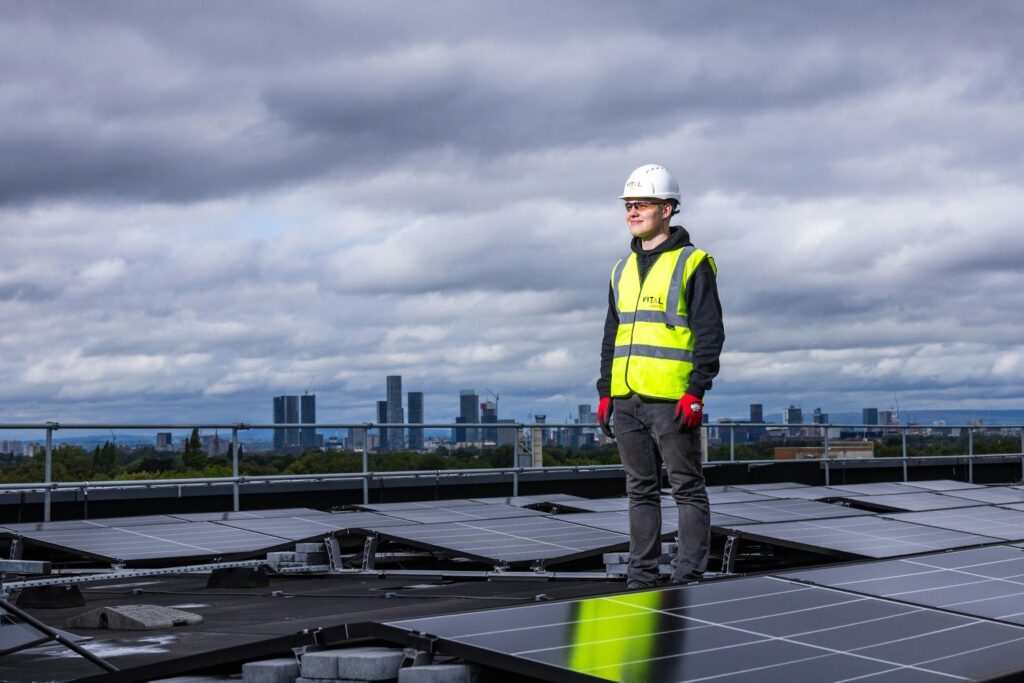
A solar panel warranty acts as a guarantee to deliver a certain level of quality and performance. In other words, solar warranties are a type of insurance that protects you financially if part or all of your solar PV system fails within a specified time period.
All reputable solar manufacturers will provide a solar panel guarantee, and if they don’t, run for the hills!
Solar panel warranties consist of two parts:
- The product warranty: Protects you against failing and faulty components.
- The performance warranty: Guarantees your solar panels will perform to a specified standard.
This is the bare minimum you should expect from a solar manufacturer. Some brands will go beyond this and provide more for their customers.
For example, you might see Solar workmanship warranties providing coverage for installation and labor. At 8760 Solar, we offer a five-year workmanship warranty on all our projects.
Why Do Solar Warranties Matter?
Despite dropping in price considerably over the past decade, solar PV systems still do not come cheap. Part of their appeal (besides the free energy, of course) is their longevity.
Although they are expected to drop slightly in performance as they age, solar panels are meant to last a few decades. Indeed, there are solar panels installed in the 80’s that are still in operation and performing.
Therefore, solar manufacturers are expected to live up to that expectation and provide assurances to the consumer that they won’t lose out financially should their solar panels fail.
Moreover, many people assume that their homeowners or commercial property insurance will provide coverage for their solar panels. And this is true to a point (more on this below), but you won’t be covered for product faults or performance issues.
Therefore, solar warranties are crucial for ensuring you get what you paid for and aren’t short-changed with shoddy equipment.
Solar Product Warranty vs Performance Warranty
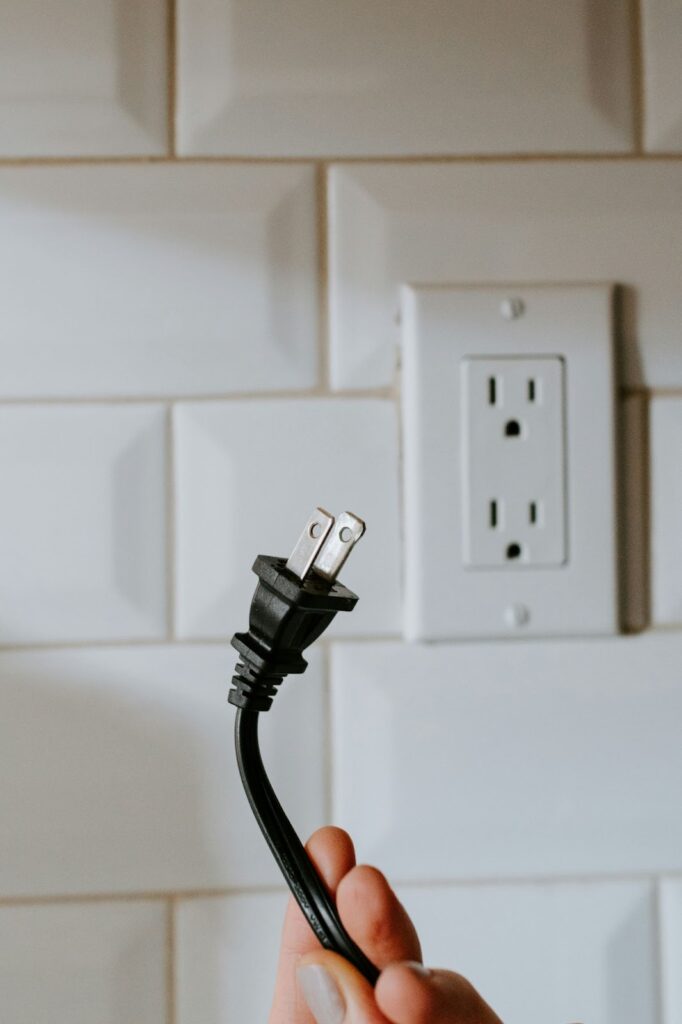
As previously discussed, a solar panel’s warranty includes two key parts – product and performance – and the length of these coverages differ substantially.
Here’s a breakdown of the differences.
Solar Product Warranty
A solar product warranty comes under several guides. It’s also known as:
- An equipment warranty
- A materials warranty
However, they all mean the same thing and provide the same coverage.
The product warranty protects you from any faults or defects that your solar panels have or develop within a specific timeframe.
For example, sub-standard manufacturing or transportation processes can create micro-cracks that lead to a drop in performance levels or other defects. Low-quality materials used to create solar panels can also lead to problems such as delamination or hot spots.
A standard product warranty for solar panels is typically 10 – 15 years.
In recent times, however, we have started to see the emergence of 20 – 25-year product warranties, but you will only get these with high-cost premium brands. For example, a Blue Raven solar warranty provides a 25-year product warranty along with a 10-year solar workmanship warranty.
The product warranty will cover the cost of any repairs or replacement equipment should the originally installed equipment suffer a defect or fault, but only if the problem originated at the manufacturing stage.
However, there is a long list of things it does NOT cover, including:
- The cost of diagnostic tests to identify the fault or problem
- The cost of labor to install any replacement equipment
- Damage to solar panels sustained from power surges or power failures
- Damage to solar panels sustained from fire, flood, weather conditions, or other acts of nature
- Damage to solar panels sustained from accidental circumstances, acts of vandalism, or anything else that can be considered outside of the manufacturer’s control
- Solar panel theft
You will notice that the product warranty is, in most cases, shorter than the performance warranty. This is because most manufacturing faults don’t take long to reveal themselves and your solar developer will likely spot them during the installation stage.
Solar Performance Warranty
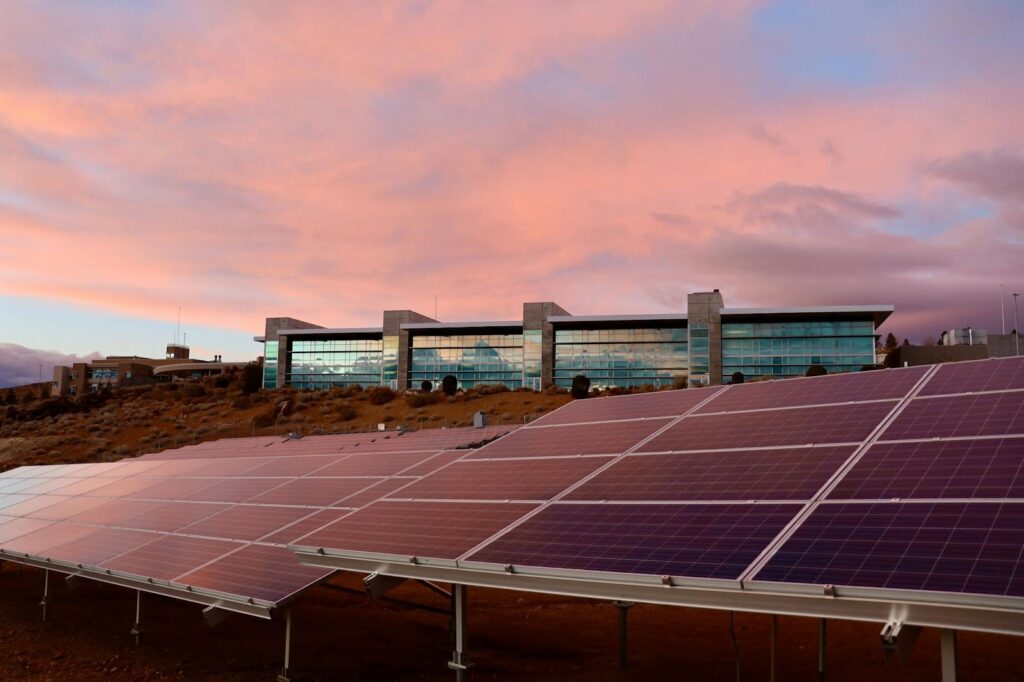
The solar performance warranty (also sometimes called an output warranty) guarantees your solar panels can achieve a percentage-based output throughout the warranty period.
No matter which brand of solar panels you opt for, they all decline in efficiency during their lifetime. However, they should only decline by a small yearly percentage and definitely not decline sharply.
The average length of a solar performance warranty is 25 years, and in most cases, the warranty guarantees that:
- A performance drop of no more than 2% after the first year of operation
- A performance drop of no more than 0.5% for each subsequent year
Although this is the average degradation rate, different brands have lower and higher rates. To ensure your PV system performs well over its lifetime, choose solar panels with average or lower degradation rates.
For example, QCells has a warranty that guarantees no more than 2% degradation in the first year, but its subsequent yearly degradation rate is 0.54%, slightly higher than the average.
Standard Performance Test Conditions
When looking at the performance rates of your solar panels, there’s something crucial to consider. The manufacturer’s performance ratings are based on standard test conditions, which don’t necessarily relate to how your solar panels perform in the wild.
Standard test conditions are an industry-standard testing method used to benchmark PV module performance. This allows for direct comparison between the different types of solar panels as well as the different brands on offer.
Standard test conditions are:
- PV cell temperature of 77°F
- 1000 W/10.7 square feet
- 1.5 air mass (AM1.5)
This may not mean much to you, but essentially, it mimics the conditions on a clear day at noon during the spring or fall equinoxes in the USA.
What does this mean for you?
Well, your solar panels won’t always experience a clear day or mild temperatures, so their performance can dip throughout the year. This doesn’t mean they are performing sub-optimally, though.
For example, solar panels lose performance when:
- Temperatures reach over 77°F
- There is cloud cover
- Part or all of the solar panels are shaded
If you suspect your solar panels are losing performance outside of these factors, then closely monitor them during clear days. Another sign is if your energy bills experience a sharp increase.
Solar Inverter Warranty
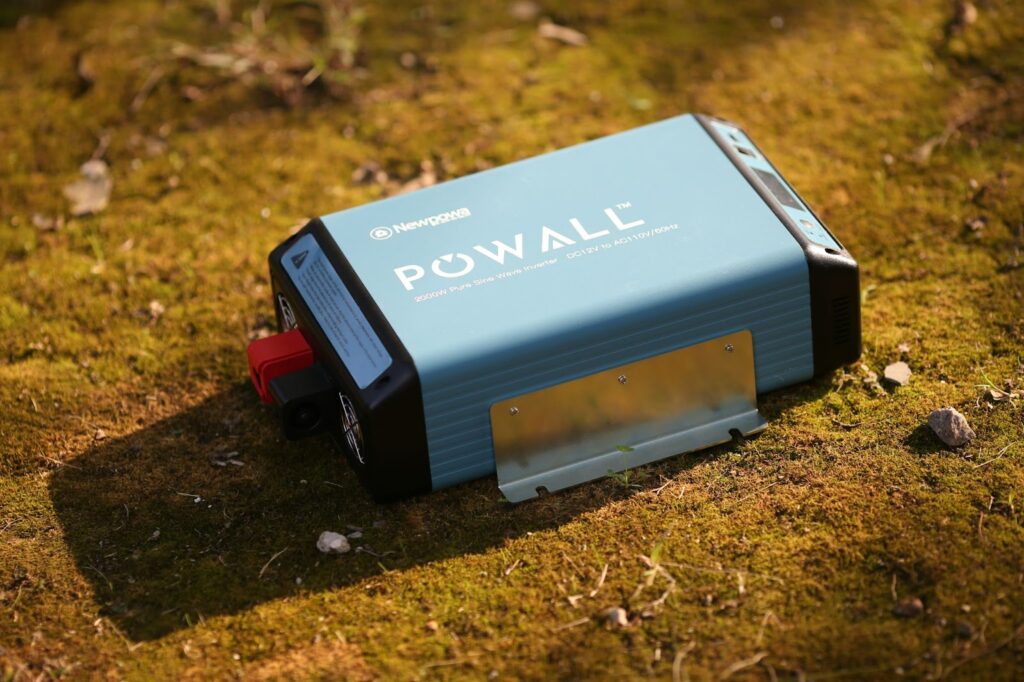
We have to mention solar inverters here because many assume that they are included as part of your solar panel warranty.
However, the inverter is a piece of equipment that is separate from your solar panels. For example, you can have solar panels from one brand and a solar inverter from another. That means the warranty is separate – and different – from the one included with your solar panels.
The length of the solar inverter warranty depends on the type you have and the manufacturer you bought it from. The average warranty tends to be:
- String inverters: 10+ years
- Micro inverters: 25 years
String inverters also have power optimizer equipment and the warranty for this is usually 25 years.
The coverage is typically more or less the same as a solar panel warranty. You can have your inverter replaced or repaired if it develops a fault during the warranty period. The same exclusions also apply.
Are Solar Panels Covered by Homeowners Insurance?
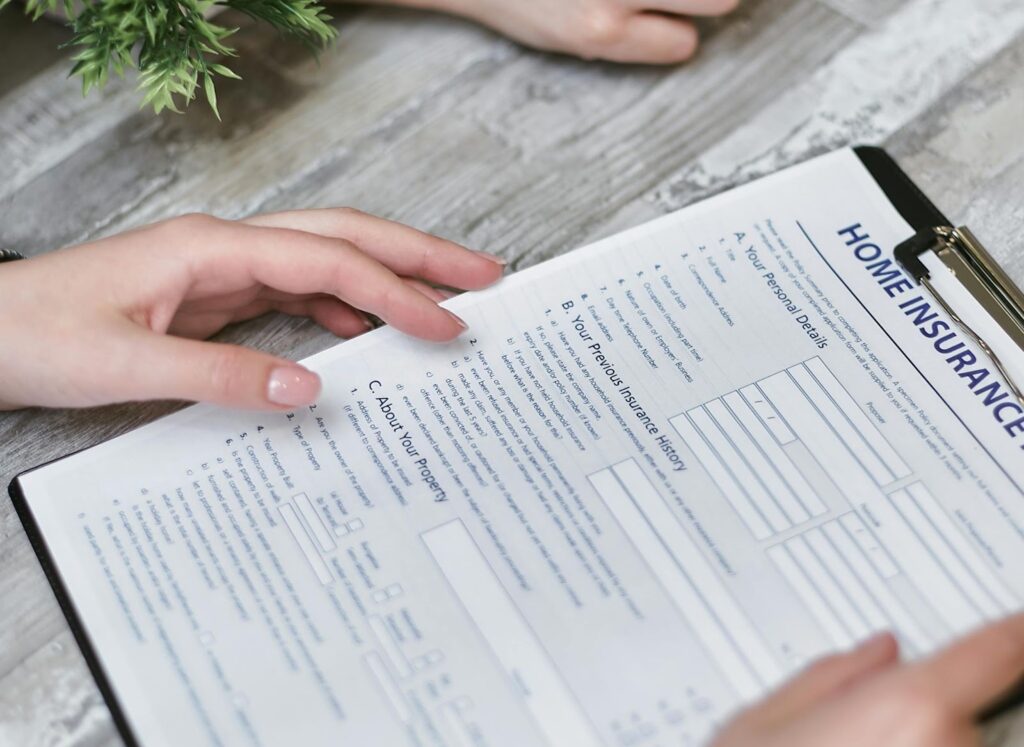
Yes, solar panels are covered by homeowners’ insurance, but not for the things we have detailed above. Bear in mind, however, that homeowners’ insurance differs from one provider to the next, so be sure to check yours for levels of coverage.
If you have installed solar panels onto the roof of a residential property, then they are generally considered part of the property itself.
That means they can be covered for accidental damage, weather damage, and theft.
Things get more complicated if you have installed your solar panels on structures that are not part of the main residence. Detached garages, outbuildings, and carports, for example.
If your homeowners’ insurance does cover separate structures, then it’s often at a greatly reduced rate. Again, check your property’s coverage to understand this.
Are Solar Panels Covered by Commercial Property Insurance?

Commercial property insurance is a lot less clear-cut than homeowners’ insurance. The bad news is that not all commercial property insurers will provide coverage for solar panels.
This is because they are considered high-risk and, therefore, have increased liability.
One reason for this consideration is that solar panels are a relatively recent addition to commercial properties. That means there isn’t a whole lot of data to refer to to assess their risk. This in itself raises the risk and associated liability by default.
Additionally, solar panels are considered a vulnerable addition to a commercial property. Someone with a mind for vandalism can quickly accumulate thousands of dollars worth of damage by throwing projectiles at a solar array.
As solar energy explodes in popularity and more and more commercial properties – including farms and rural businesses – switch to solar energy, we will see this start to change.
While commercial property insurers may be reluctant to provide coverage for solar arrays, we are seeing the emergence of insurers specializing in the coverage of solar arrays. And as demand grows for solar coverage, commercial insurers may eventually be forced to include it in their policies.
How to Avoid Voiding Your Solar Panel Warranty
It should go without saying that voiding your solar warranty should be avoided at all costs.
If you are unfortunate enough to void your warranty, you will not be covered if your panels develop a fault or drop significantly in efficiency. Should either of those events occur, you’ll be required to cover the cost of repairing or replacing the panels yourself.
However, if you had your system installed by a professional solar developer and unless you plan to tamper with your PV array, it’s actually quite difficult to void your warranty.
Warranty exclusions and limitations vary between manufacturers, but generally, the following will void your warranty:
- You can’t provide proof of purchase
- You bought the solar panels from an unauthorized reseller
- You deface or remove the solar panel’s nameplate or serial number
- You have the solar panels installed by an unregistered contractor, or you attempt to install the panels yourself
- You fail to carry out any proper or correct operation and maintenance
- You contract an unlicensed or unqualified individual to carry out any repairs or perform inspections
- You subject the solar PV system to voltage over the maximum as defined by the manufacturer
- You carry out any unauthorized modifications or additions to the PV array
- You tamper with the solar panels without the manufacturer’s authorization
It’s worth noting here that warranties aren’t voided if you sell your property and transfer ownership from yourself to the new owner.
Most warranties include a transfer of ownership either for free or for a small charge. When the new owner takes control of the solar array, the warranty will continue for its remaining validity period under the new owner’s name.
Trina Solar Warranty: A Case Study
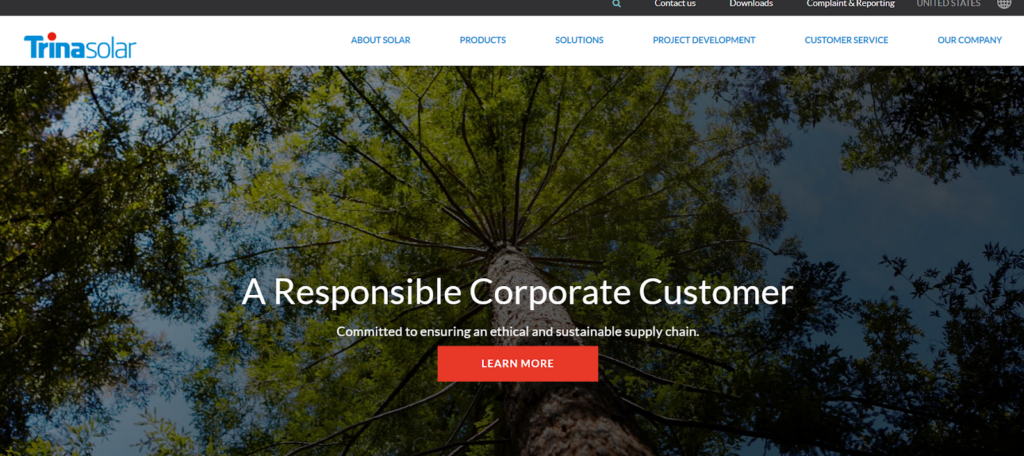
At 8760 Solar, we use Trina Solar panels for all our installations. Trina panels are used globally and, in our opinion, offer the right balance between quality and affordability.
Trina’s solar warranty differs depending on which type of solar panel you purchase. However, we only use the bifacial Vertex panel in our installations, so here we will focus on what that warranty includes.
Here’s what you get:
- 12-year product workmanship warranty
- 30-year power warranty
- 2% first-year degradation
- 0.45% subsequent year’s degradation
The 12-year product warranty guarantees there will be no defects in material, workmanship, or manufacturing that reduce the panel’s ability to work efficiently.
Trina’s warranty kicks into action on the date of the initial installation or three months after the delivery, whichever date is earlier.
The exclusions and what will void the warranty are in line with what we have described in this article.
Speak to 8760 Solar
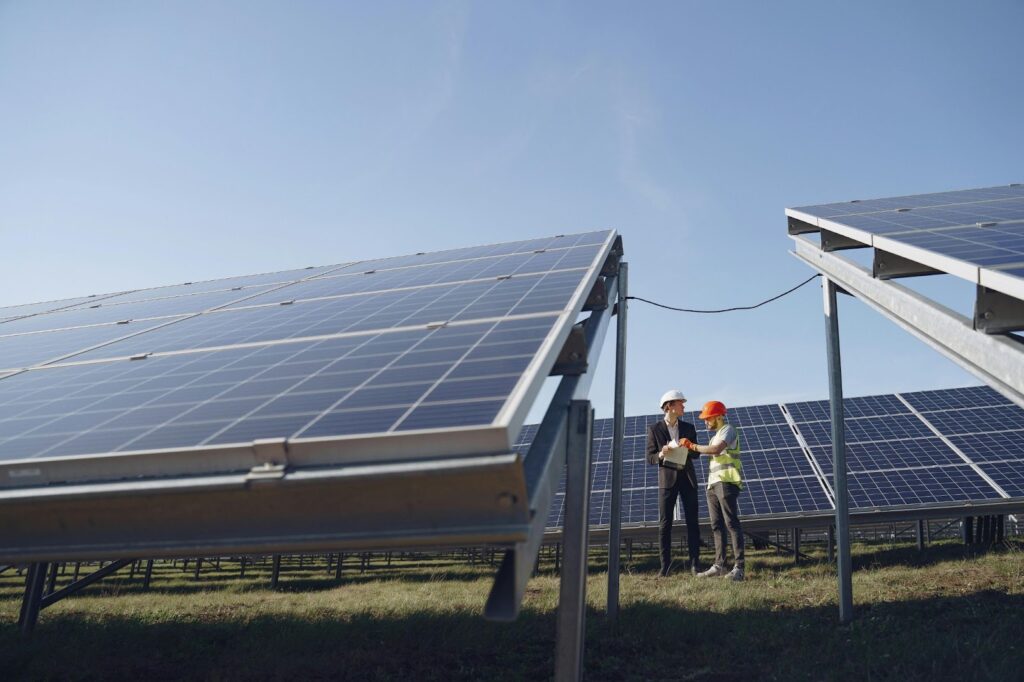
At 8760 Solar we ensure that all our clients receive a high-quality and high-performing solar PV system. Therefore, it’s extremely rare that you will have to use the warranties on your equipment.
Be assured that we are qualified and registered solar developers, so using us for your solar installation will mean your solar warranty remains perfectly valid.
Our specialty is providing solar energy to farms and agricultural businesses across Colorado, so if that sounds like you, we welcome you to get in touch.
Text “READY” to 719 470-0254 or contact us via email at sales@8760solar.com. After a chat, we can quickly perform an analysis of your business premises and then provide you with an accurate quote.
We’re looking forward to hearing from you!
Frequently Asked Questions
Are Solar Panels Covered by Business Insurance?
Not all business or commercial property insurers provide coverage for solar panels. This is because they are considered higher risk and have a high liability. Consult your policy to understand if your business insurance provides coverage for solar panels.
How Long Is the Warranty on Solar Panels?
The length of a solar panel warranty differs between manufacturers. However, the average length of a solar product warranty is 10 – 15 years, while the average solar performance warranty is 25 years. Some premium brands of solar panels may offer longer warranty periods.
What Solar Panels Have a 30-Year Warranty?
Trina Solar’s Vertex bi-facial panels come with a 30-year performance warranty. This guarantees that there will be a first-year degradation of no more than 2% and that the panels won’t suffer more than 0.45% worth of degradation for each of the subsequent 29 years.
How Much Does a Solar Panel Warranty Cost?
A solar panel warranty is included in the initial purchase price of the solar panels. Therefore, they do not cost anything. All reputable solar panel manufacturers will offer a solar warranty as part of their product and you should be highly suspicious of any brand that wants to charge you extra for one.
Are Solar Panel Warranties Worth It?
Solar panel warranties are necessary and worth it because they protect you from defects and faults that occur during the manufacturing stage. If your solar panels develop an issue or their production rate drops sharply, then the warranty should cover the cost of repairing or replacing them.
Do Solar Panels Void Your Roof Warranty?
Solar panels will not void your roof warranty as long as the installation of the panels and racking system is carried out according to the manufacturer’s guidelines and specifications.
Your solar roof warranty will cover any defects and faults that develop in the solar panels or any drops in efficiency during the warranty’s lifetime.
